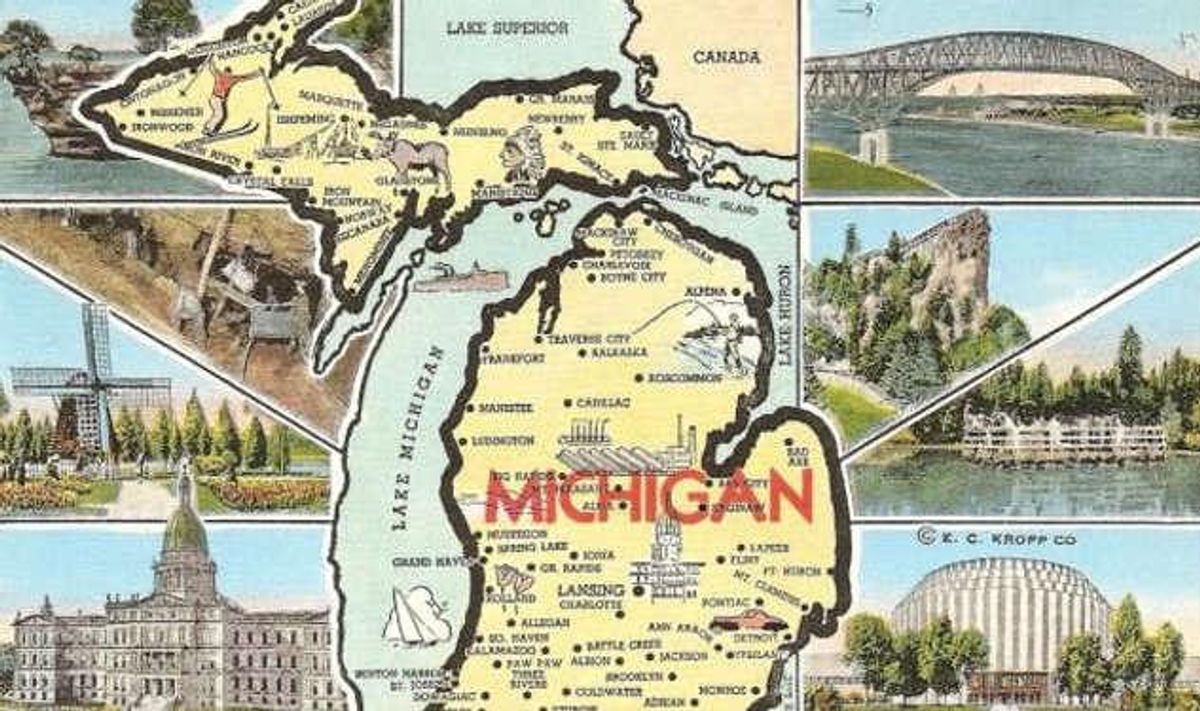News & Opinion
Fighting For Marriage Rights Is Like Writing DNA

Michigan lawmakers hope a series of laws will undo democratic mutation.
May 30 2013 9:57 AM EST
December 16 2017 10:21 PM EST
By continuing to use our site, you agree to our Private Policy and Terms of Use.

Michigan lawmakers hope a series of laws will undo democratic mutation.
Biologists love to argue about how much of our DNA we actually need. Just this week we're seeing new news stories rehashing the claim that up to 98% of our genetic material is nothing but "junk," just superfluous nucleotides. In this case, the story is that some of this DNA may lead to cancer, but such reports don't always come with such alarmist subjects. Most often this number, 98%, is just bandied about, becomes a brief news story and is then countered by studies offering their own percentages. But specific digits aside, everyone seems to agree that we don't use all of our genetic code. That doesn't mean that it's useless.
If you can stomach a brief science lesson: Interspersed repeat mechanisms allow so-called pseudogenes, the "junk" that makes up so much of our human coding, to form foundations for newer, more useful sequences. What appears to be a useless string of guanine and thymine may be quite important. It could even be the code that makes people gay. Who knows? What is known is that we human beings cannot function without those pseudogenes. They help more practical genes to evolve, to become the best little genes they can be.
It's with DNA and repeat sequences in mind that I read about a new legislative effort in Michigan to nullify their 2004 amendment constitutionally banning marriage equality. If passed, the proposed legislation, introduced yesterday by State Senator Rebekah Warren, would overwrite that odious law. Warren's Democratic peers, Sens. Gretchen Whitmer and Virgil Smith, also introduced legislation meant to right past wrongs. Smith's would recognize out-of-state same-sex marriages and Whitmer's will repeal any other marriage limitations enacted before 2004. Supporters hope that these bills will pave the way for full-fledged marriage equality in Michigan.
Similar efforts have been launched in other states. Nevada's Assembly and the State Senate have both approved a resolution that will repeal their 2004 same-sex marriage ban and create equality there. Thanks to their complicated legislative system, true equality won't become a reality until at least 2015. Activists in Oregon meanwhile have it a little easier: they're fighting for a 2014 ballot measure that condenses Nevada's long-run option into a simple vote. A win will undo a 2004 ban and create marriage equality. Marriage discrimination would drop off like a vestigial tale. (Illinois' ongoing and increasingly hopeful fight for marriage would have a similar effect.)
Our democratic system can be completely inefficient and counter-intuitive at times. It can take millions of dollars and years to overwrite constitutional mutations that shouldn't have expressed themselves in the first place. Yet anti-gay laws, however offensive, may not be entirely useless: their passage can help spark collective action, as they did when GOP-led governments brought down their homophobic ax in the early aughts. These junky garbage laws provided the foundation our nation's ongoing evolution. It took toxic laws, venomous amendments attached to constitutions, to turn the nation on to American equality.
Now, if only there were some supreme code that could help speed this piecemeal evolution along...
Sexy MAGA: Viral post saying Republicans 'have two daddies now' gets a rise from the right